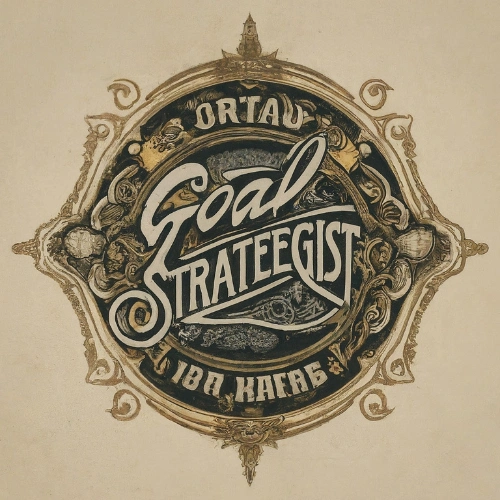Embarking on a research project, you’ve likely encountered the term “research goals.” But what exactly are they? Simply put, research goals are the heart of any scholarly quest, guiding you from curiosity to discovery.
Understanding your research goals is crucial—they’re your roadmap to navigating the complex terrain of data, theories, and hypotheses. They help you stay focused, align your methods, and clarify your outcomes. Whether you’re a seasoned academic or a budding researcher, setting clear, achievable goals is the linchpin to success in your investigative journey.
What Are Research Goals?
As you delve into your project, it’s essential to outline what research goals are and their significance. Research goals serve as your project’s guiding lights, keeping your investigation on track and ensuring that every action taken is intentional and conducive to your overarching inquiry.
When embarking on a research endeavor, it’s easy to become overwhelmed by the vast amounts of information and potential directions your inquiry could take. That’s where setting specific, measurable, achievable, relevant, and time-bound (SMART) goals can make all the difference. By employing these criteria, you create a framework that helps filter out irrelevant data, streamline your methods, and bring clarity to the complexity of your research objectives.
Imagine research goals as the checkpoints in your scientific journey. They help break down the research process into manageable segments, allowing for periodic assessment and realignment when necessary. With each goal, you’re not just moving forward; you’re also anchoring yourself to the purpose of your investigation, which can include:
- Unearthing new data or insights.
- Testing a specific hypothesis.
- Exploring the practical applications of a theory.
- Contributing to scholarly discourse on a topic.
Delineating Research Aims
Quite often, your research goals are dictated by the questions you seek to answer. Are you looking to solve a problem, prove a theory, or generate a new understanding of a subject? By clearly stating your aims, you provide a tangible endpoint for each stage of your research.
- Define what success looks like for your project.
- Map out the methods that’ll get you to each of your goals.
- Anticipate challenges and outline strategies to overcome them.
- Establish benchmarks for assessing progress.
Remember, a well-articulated research goal is not just about reaching an end; it’s about forging a path that is insightful, methodical, and results-oriented. By staying true to your research goals, you maintain the integrity of your academic pursuit and enhance the impact of your findings.
The Importance of Research Goals
When you’re embarking on a project, understanding why research goals matter can make the difference between a successful outcome and a directionless effort. These goals serve as the backbone of your research framework and are critical in maintaining focus on your main objectives—acting as the guiding stars that shape your investigative journey.
Prioritizing research goals ensures efficient use of resources. Time, money, and effort are allocated wisely when you have a clear roadmap to follow. The specificity of SMART goals aids in avoiding the pitfalls of vague ambitions, which can lead to unnecessary detours or wasted resources. Let’s not forget the accountability aspect; when your goals are measurable and time-bound, it’s much easier to track your progress and hold yourself accountable to the deadlines you’ve set.
Moreover, when you set achievable and relevant research goals, you’re more likely to maintain motivation throughout your project. They act as incremental victories—milestones that fuel your forward momentum. Each goal achieved is a step closer to the bigger picture, enabling you to piece together the puzzle of your research with precision and clarity.
Finally, in the context of collaborative work, research goals are indispensable for ensuring all team members are on the same page. They foster a sense of unity and focus, mitigating the risks of miscommunication. Essentially, they are a communication tool in their own right—translating complex ideas into actionable tasks that can be tackled as a cohesive unit.
In shaping the methodology of your work, research goals are not just stepping stones but essential building blocks that lay the foundation of your academic endeavor. Without them, the structure of your research risks collapsing into a heap of vague ideas and unconnected data. It’s the rigor of methodical planning and goal setting that elevates a simple investigation into a comprehensive study with real-world implications.
How to Define Research Goals
When you set out to define your research goals, begin by establishing broad objectives. These are akin to the mission statement for your project, framing the overall direction of your study. Subsequently, you’ll need to refine these into specific research questions. These questions guide your exploration and ensure that every step you take is aligned with your overarching objectives.
Aligning Goals with Research Questions
To ensure your goals are on point, your research questions should be:
- Clearly articulated – No ambiguity about what you’re seeking
- Directly related – Each question should directly contribute to your goals
- Evidence-based – Your questions should require data and research to answer
SMART Guidelines
Following the SMART criteria for goal-setting can significantly enhance the likelihood that your research will be successful. Here’s how to apply each principle:
- Specific: Makes sure that your goal is clearly defined
- Measurable: Ensures that you can track your progress
- Achievable: Keeps your goals realistic and attainable
- Relevant: Aligns your research with broader field of study needs
- Time-bound: Assigns deadlines to keep your research on schedule
Breaking Down the Process
After aligning your research questions with the SMART criteria, break down the process further:
- Assess your resources and limitations
- Detail the steps you’ll take to reach each milestone
- Identify the methods of data collection and analysis you’ll use
- Determine how you’ll document and share findings
This approach enables you to construct a solid blueprint for your research journey, ensuring that every action you take is intentional and conducive to your desired outcomes. Keep in mind that flexibility is paramount; you should be prepared to adapt your goals as new insights and information come to light. By carefully defining your research goals, you’re not just plotting a course; you’re creating a strategic map that will guide your academic adventure through uncharted territories and towards enlightening discoveries.
Aligning Methods with Research Goals
Once you’ve clearly defined your research questions, your next step is to align your methods with these goals. Choosing the right methodology is crucial to the success of your research. Your selected methods should directly support your ability to answer your research questions and achieve your SMART goals.
Consider the following when aligning methods with goals:
- Feasibility: Are your selected methods realistic given your time frame and resources?
- Suitability: How well do the methods match the nature of your research questions?
- Precision: Will these methods generate data that’s accurate and reliable?
- Ethics: Are the methods you’ve chosen ethically sound and do they comply with relevant guidelines?
In quantitative research, this might involve selecting statistical methods that can test your hypotheses effectively. In qualitative research, the focus could be on choosing the right forms of interviews or observations that best elicit detailed and meaningful insights relevant to your topic.
Consider your research design as well. Whether it’s experimental, correlational, or descriptive, the design must be tailored to address your research goals appropriately. For instance, if you’re exploring causality, an experimental design could be the most suitable option. Similarly, if you’re examining how variables relate to one another, a correlational design could be the way forward.
By utilizing a methodological approach that’s in line with your goals, you’re more likely to:
- Collect relevant data efficiently
- Analyze results effectively
- Provide answers that are directly related to your research questions
Remember that methods are not just about data collection but also about data analysis. You’ll need to choose analytical tools and techniques that can handle your data type and volume, all while cleanly mapping back to your objectives.
Throughout this process, validate your choices frequently against your SMART goals to ensure that every methodological decision is strategically aimed at facilitating the success of your research. This validation isn’t a one-time task but an ongoing part of the research process as you adapt to new information and refine your approach.
Achieving Research Goals
When you’re knee-deep in the research process, focusing on your goals is paramount to success. Achieving research goals isn’t just about reaching an endpoint—it’s an ongoing cycle of planning, acting, observing, and reflecting.
To stay on the right track, it’s essential to monitor progress and adapt strategies as needed. Setting up regular check-ins against your project timeline can help ensure deadlines are met and resources are used effectively. These checkpoints are not just about ticking boxes; they give you the chance to adjust your approach in response to any challenges or new information.
Remember, quality data is the bedrock of meaningful research. Ensuring that your data collection methods are sharp and your tools are up to snuff will directly impact the validity of your findings. This might require you to become proficient in using new software or technologies that can enhance data accuracy and efficiency.
Moreover, today’s researcher must be adept at navigating the digital landscape. Leveraging online platforms for surveys and questionnaires can vastly expand your reach and the diversity of your data. However, as you increase your digital presence, be vigilant about data privacy concerns and secure the necessary permissions for the use of any online tools or platforms.
Understanding and utilizing statistical analysis is another key aspect of achieving research goals. Whether you’re identifying patterns, testing hypotheses, or exploring correlations, the application of statistical methods will help you make sense of complex data sets and draw credible conclusions.
And let’s not forget the power of collaboration. Engaging with peers, mentors, and the broader research community through workshops, conferences, and publications can provide critical feedback that enriches your research and pushes you toward your aspirations.
Achieving research goals is where planning meets action. You’re not just a planner; you’re an investigator on a quest for knowledge, tirelessly navigating the intricate maze of data and theories until the pieces of the puzzle begin to align.
Conclusion
Setting clear research goals is the cornerstone of a successful study. You’ll find that aligning your methods with these objectives not only streamlines the process but also enhances the credibility of your findings. Remember, it’s not just about gathering data—it’s about analyzing it in ways that shed light on your questions. Stay vigilant in your pursuit of quality and precision, embracing new tools and technologies to gather data responsibly. Keep your goals SMART, your strategies flexible, and your collaborations strong. By doing so, you’ll navigate the complexities of research with confidence, ensuring that your outcomes are not only insightful but also impactful.


Leave a Reply